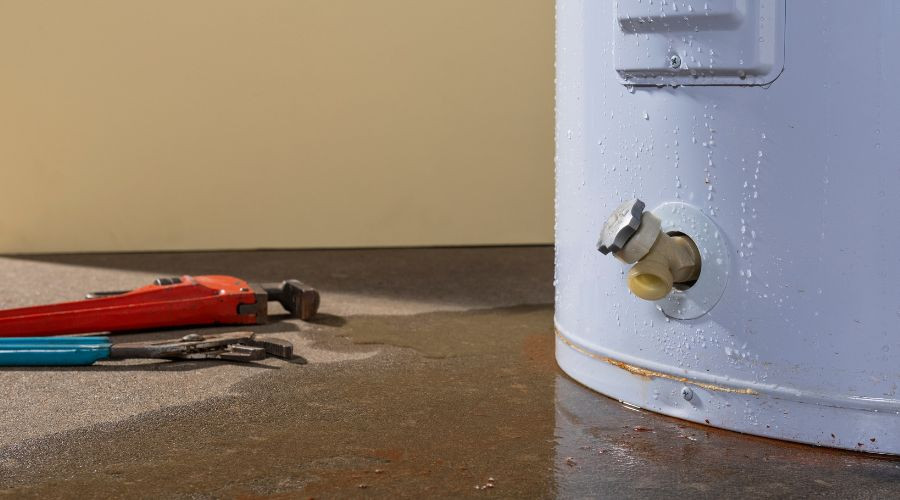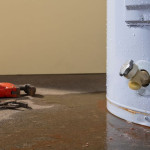When Is a New Water Heater Needed?
Is a water heater replacement on the horizon? A sudden blast of icy water is unpleasant, but a catastrophic leaking water heater is a problem that can’t be ignored. Recognizing subtle warnings allows proactive planning and helps avoid a costly plumbing emergency. By spotting these clues early, action can be taken before failure occurs. Let’s explore the key indicators that a water heater is nearing the end of its service life.
Temperature Issues
 Inconsistent hot water often signals that water heater replacement is overdue, especially when morning showers turn cold without warning. Failing heating elements or a faulty thermostat can cause dramatic temperature swings during a single use, undermining dependable water heating. A complete loss of hot water or rapid depletion during normal demand indicates serious internal issues. If multiple occupants now compete for limited hot water during peak hours, the system may no longer meet household needs.
Inconsistent hot water often signals that water heater replacement is overdue, especially when morning showers turn cold without warning. Failing heating elements or a faulty thermostat can cause dramatic temperature swings during a single use, undermining dependable water heating. A complete loss of hot water or rapid depletion during normal demand indicates serious internal issues. If multiple occupants now compete for limited hot water during peak hours, the system may no longer meet household needs.
Unlike minor temperature dips that routine maintenance can correct, persistent performance problems typically require full unit replacement. Capacity declines as sediment accumulates and components wear, reducing efficiency over time. When these temperature issues continue despite recent service, replacement becomes the practical path.
Leaks
Visible water pooling around the unit signals an urgent need for action. A leaking water heater threatens a home’s foundation, flooring, and nearby finishes, and this is not a maintenance item to postpone.
A water heater leak rarely resolves on its own and typically worsens. Internal tank damage can create pinhole openings that expand, while loose connections at pipes and valves may cause steady dripping. Unexplained dampness or stains in the utility area are additional red flags.
Attempting repairs on a compromised tank is often futile and expensive. Professionals commonly recommend water heater installation when the source is the tank rather than replaceable components. Unlike minor valve adjustments, tank failure indicates structural compromise of the entire system. Acting quickly helps prevent extensive restoration costs and maintains reliable hot water.
Age and Corrosion
 The timeline for water heater replacement becomes critical once a unit crosses the decade mark. Traditional storage models typically operate 8–12 years, but those older than 10 often develop costly problems that make replacement more sensible than repair. Many pre-2014 units also lag behind newer models in efficiency and performance.
The timeline for water heater replacement becomes critical once a unit crosses the decade mark. Traditional storage models typically operate 8–12 years, but those older than 10 often develop costly problems that make replacement more sensible than repair. Many pre-2014 units also lag behind newer models in efficiency and performance.
Beyond age, visible rust or signs of water heater corrosion signal immediate concern for water quality and structural integrity. Rust-tinted water at the tap indicates internal tank deterioration that cannot be reversed, and metallic odors or tastes suggest corroded metal entering the household supply.
Corrosion weakens the tank shell, raising the risk of sudden rupture and flooding. Unlike targeted fixes that address single components, widespread deterioration affects the entire system and will continue to progress. Prompt water heater replacement is recommended once corrosion is evident to avoid emergency failures and costly water damage.
About Manny's Quality Plumbing Heating & Air
Manny's Quality Plumbing Heating & Air is a top-rated provider of plumbing and HVAC services in Greeley and the surrounding areas. They offer straightforward pricing and transparent service from trusted technicians. Call them today for water heater repair and installation in Greeley, CO.






